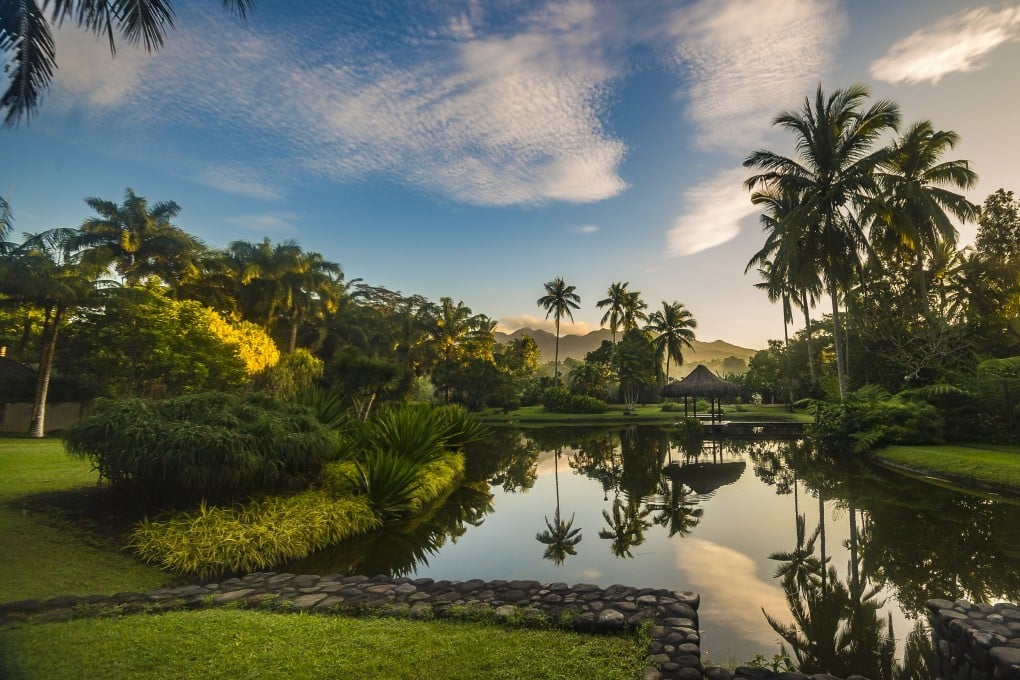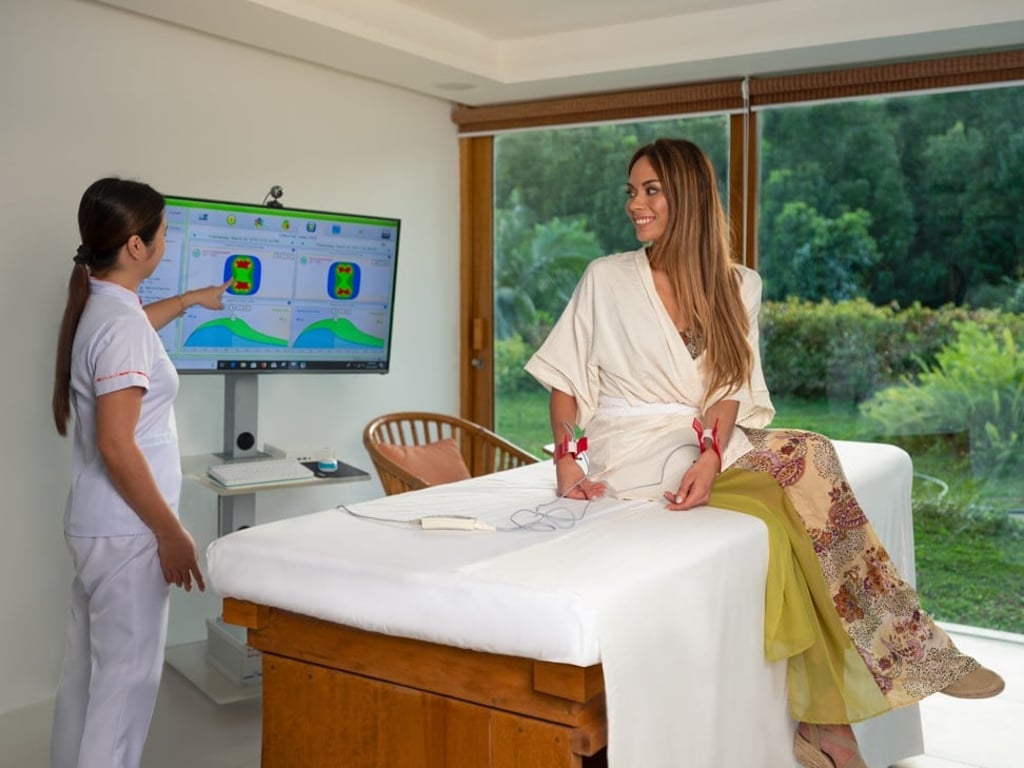How data is changing preventive health care, and the human quest for the perfect body
- Wellness experts see a near future in which our ‘data selfies’ become more important than our reflection in a mirror. Already, bio scans are changing wellness
- From live blood analysis to a digital mammogram to pulse monitors, data-driven testing detects our physical strong points and weak spots

Being told you look younger is always nice to hear. But when it comes from a machine, it feels delightfully official.
I’m sitting with Dr Marian Alonzo, the medical chief at The Farm, in San Benito, Lipa City, Batangas, about 90km south of the Philippine capital, Manila. Outside, all is wildly lush and overgrown, giant banana leaves and elephant ears swaying in the breeze. Inside, it’s a world of clinical white, banks of futuristic machines and computers softly whirring as they process human data.
The Farm has been in operation since 2002, and is revered among a community of die-hard health buffs as a place to relax, detox, and leave with a clean colon. Since its launch last year of an array of cellular-health optimisation programmes, it is tapping into the new Holy Grail of health – data-driven results.
Alonzo is taking me through my Bio Med Scan data – collected through a German-built diagnostics tool using a pulse monitor, similar to an electrocardiogram, or ECG, worn on my wrists for 15 minutes. It has analysed the intervals between my heartbeats to amass information about my autonomic nervous system, which regulates such things as hormone production, energy levels, my “psycho-emotional status”, and my biological age (which, to my astonishment, is three years younger than my actual age).

Next up is the live blood analysis. Dr Ron Bardonado siphons a pinprick of blood from my finger, inspects it under a microscope, and displays it on a high resolution screen. He points out my red blood cells are in a sticky, “rouleau” formation. This clumping together is an unhealthy sign, as the cells are not as free to carry and absorb oxygen.